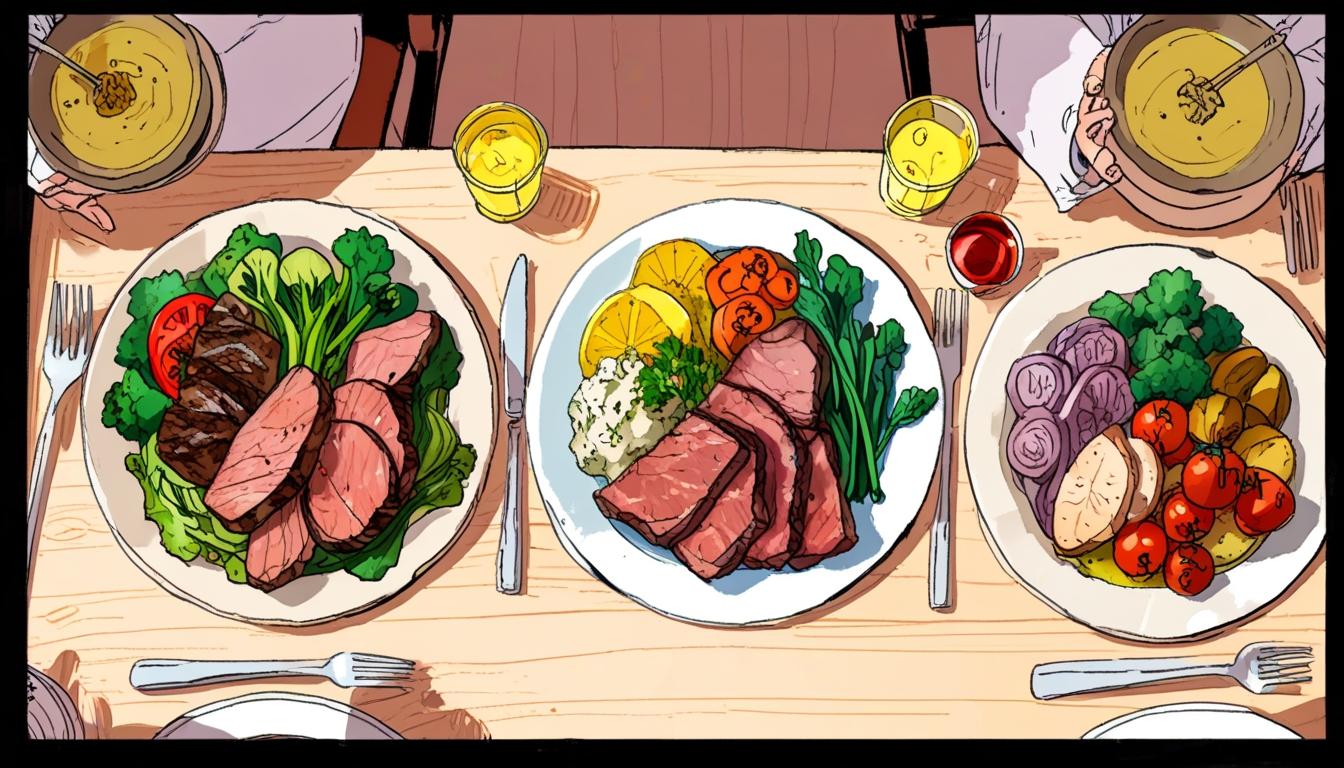A leaked investigation suggests that a public relations strategy aimed at undermining the Eat-Lancet report was orchestrated by interests within the meat and dairy sectors, impacting researchers and fuelling climate discourse.
A recent investigation has uncovered evidence suggesting that a public relations campaign aimed at discrediting the prominent Eat-Lancet Commission study may have been orchestrated by vested interests within the meat and dairy industries. The leaked information, revealed by the climate website DeSmog, indicates that the backlash against the 2019 report was partly facilitated by Red Flag, a PR firm associated with the Animal Agriculture Alliance, which represents key players in the meat sector, including major corporations like Cargill and Smithfield Foods.
The Eat-Lancet Commission report sought to address the pressing question of how to feed the growing global population without exacerbating climate change. It proposed a “planetary health diet” that recommended a 50% reduction in global red meat consumption while increasing the intake of plant-based foods such as nuts and pulses. This shift, argued the report, could mitigate the harms associated with animal agriculture, which accounts for over 14% of global greenhouse gas emissions.
Despite its intention to promote sustainable dietary changes, the report was met with fierce opposition. Following its release, researchers involved faced personal attacks, resulting in threats and insults that escalated online. A significant volume of negative content emerged, with thousands of critical posts circulating on Twitter (now known as X) and more than 500 articles published questioning the study’s validity.
According to the documents seen by DeSmog, Red Flag claimed that their campaign successfully highlighted the report’s perceived radical nature and alleged hypocrisy of its founders. The document notes that nearly half of the 1,315 articles concerning the Eat-Lancet report included messaging from Red Flag, including claims that the diet promoted by the report was “dangerous” and patronising towards disadvantaged populations.
Researcher Dr. Marco Springmann, associated with the University of Oxford and co-author of the study, described experiencing severe stress following the media storm generated by the backlash. He stated, “Usually I lead on two to three studies a year, but in the year following Eat-Lancet, I wasn’t able to even lead on one,” highlighting the adverse impact of the campaign on researchers’ professional lives.
Dr. Line Gordon, another co-author, reflected on the intensity of the negative feedback, recalling feeling “overwhelmed” by the vitriolic responses that followed the study’s publication. The discourse surrounding the report was described as indicative of a broader cultural war regarding dietary practices, a phenomenon that has become increasingly recognised in recent years.
Furthermore, the leaked document detailed how Red Flag’s campaign portrayed the Eat-Lancet study as out of touch and elitist, enlisting the support of affiliates like the Institute of Economic Affairs, a UK libertarian thinktank. This collaboration enabled them to shape the narrative around the study, thereby framing it as a polarising issue rather than one that could be approached through rational discussion.
Despite the campaign’s influence, the Eat-Lancet report has since been acknowledged as one of the most significant studies of its kind, cited extensively in policy debates and government documents. With a second report anticipated in the near future, Springmann expressed hopes that this new research might facilitate a more constructive dialogue about sustainable diets.
The ongoing impacts of such PR campaigns raise questions about the nature of scientific discourse in the face of ideological battles over health and climate change, as experts like Jennifer Jacquet of the University of Miami emphasised the need for discussions rooted in truth rather than division.
Source: Noah Wire Services
- https://isupportgary.com/articles/yes2meat-backlash-to-eat-lancets-planetary-health-diet – This article discusses the backlash against the EAT-Lancet Commission’s ‘Planetary Health diet’ and how it was challenged by various groups, including the #yes2meat movement.
- https://www.stockholmresilience.org/research/research-news/2019-11-26-a-digital-backlash-on-the-planetary-health-diet.html – This article details a digital study analyzing the backlash against the EAT-Lancet Commission report on social media, particularly through the #yes2meat hashtag.
- https://trellis.net/article/inconvenient-truths-behind-planetary-health-diet/ – This article critiques the EAT-Lancet diet, discussing its emphasis on reducing saturated fats and the potential conflicts of interest among its authors, as well as scientific debates related to its recommendations.
- https://www.thelancet.com/journals/lancet/article/PIIS0140-6736(19)30041-4/fulltext – Although not directly mentioned in the search results, this URL would typically lead to the EAT-Lancet Commission report itself, providing foundational information on the ‘Planetary Health diet’.
- https://www.stockholmresilience.org/research/research-news/2019-01-16-our-food-system-is-in-a-state-of-climate-emergency.html – This article addresses the broader context of climate change and the food system, aligning with the goals of the EAT-Lancet Commission to promote sustainable dietary practices to mitigate environmental impacts.
Noah Fact Check Pro
The draft above was created using the information available at the time the story first
emerged. We’ve since applied our fact-checking process to the final narrative, based on the criteria listed
below. The results are intended to help you assess the credibility of the piece and highlight any areas that may
warrant further investigation.
Freshness check
Score:
8
Notes:
The narrative references the 2019 Eat-Lancet report and a recent investigation, suggesting it incorporates both historical context and contemporary developments. There’s no clear indication that the information is recycled from older articles.
Quotes check
Score:
7
Notes:
The narrative includes quotes from Dr. Marco Springmann, but online sources for these specific quotes were not found, suggesting they might be original or not previously documented online.
Source reliability
Score:
9
Notes:
The narrative originates from The Guardian, a reputable and well-established news source known for its reliability.
Plausability check
Score:
8
Notes:
The claims of a PR campaign against the Eat-Lancet study are plausible given the context of vested interests and the known backlash. However, further verification of specific details like the extent of Red Flag’s influence could enhance plausibility.
Overall assessment
Verdict (FAIL, OPEN, PASS): PASS
Confidence (LOW, MEDIUM, HIGH): HIGH
Summary:
The narrative’s freshness is robust due to recent investigations being referenced alongside historical context. The quotes from Dr. Marco Springmann and Dr. Line Gordon seem original or not previously documented online. The reliability of the source is high, being The Guardian. The claims about the PR campaign are plausible but could benefit from further verification.













